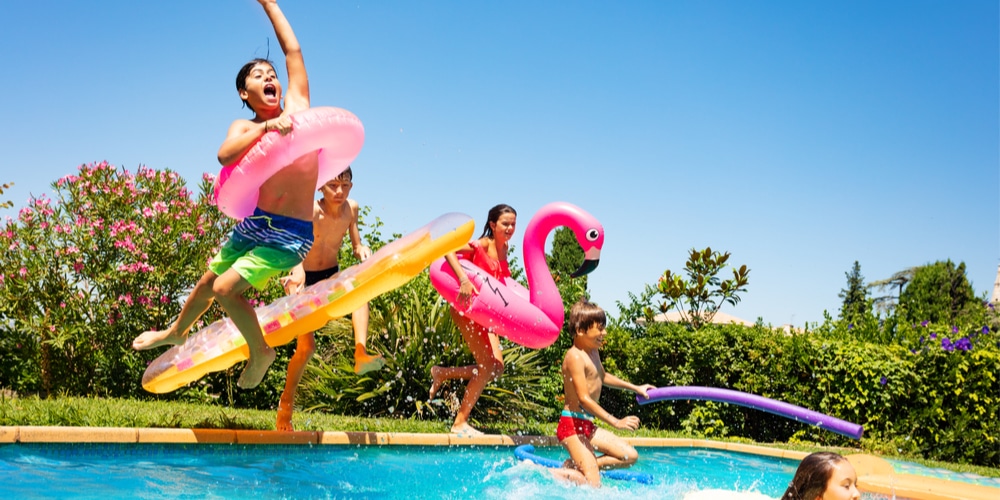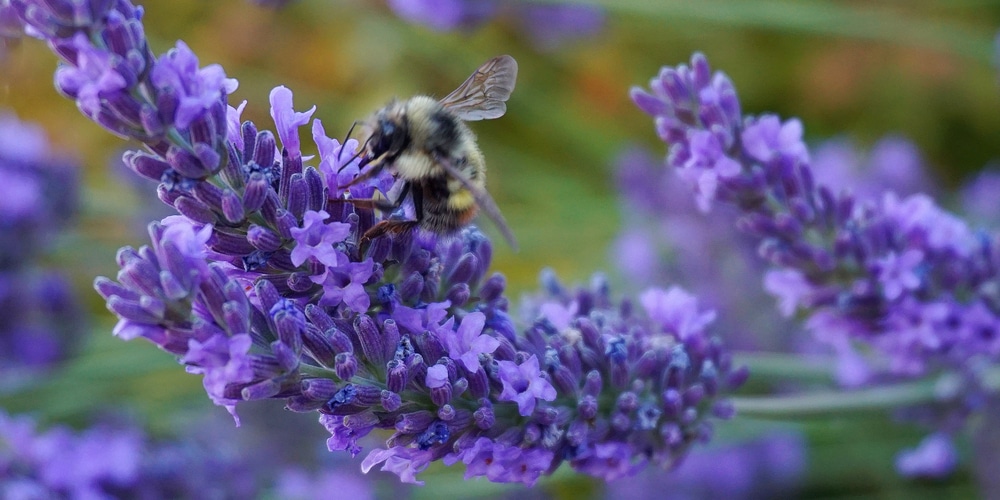Nothing can ruin a fun day at a pool like pesky bees buzzing around. Not only are they a nuisance, but they can also be dangerous if someone is allergic to their sting. Often, you’ll see bees flying around near pool areas, and for a reason. They’re attracted to the water, and they’ll set up shop near your pool if you let them.
If you have bees near your pool, there’s a high probability that you also have wasps. Wasps are dangerous because they can sting multiple times, and their stings are incredibly painful.
Not only they’re attracted to water, but they’re also attracted to sweet drinks and food. If you’re having a pool party, wasps will be sure to crash it if you don’t take the proper precautions. So, how can you keep these pests away from your pool area?
Keeping Wasps Away from Your Pool: 4 Tips
As tempting as it may sound, the destruction of these wasps is the last thing you want to do. Although they are a nuisance, bees and wasps are critical to our ecosystem.
They help with pollination and pest control, and they play an essential role in your backyard – yes, even the smaller ones.
Unfortunately, their numbers are dwindling, and some species are close to extinction. So, what can you do to keep wasps away from your pool without harming them?
Simply said, you just need to provide these bees and wasps with an alternative place to stay, rather than your pool area.
Remember, killing bees should be done as a last resort, and we highly discourage it. They’re becoming instinct and killing an entire population of bees in your backyard could significantly affect the worldwide bee population and food production.
How to keep wasps away from pool
If you’re experiencing a wasp problem near your pool, consider doing the following:
1) Have an Alternative Water Source
One of the major things bees and wasps are attracted to is water. Water is crucial to their survival, and they will fly miles to find it. If you provide them with an alternative water source, such as a birdbath or small pond, they will be less likely to visit your pool.
It doesn’t have to be a huge source of water too. A simple birdbath will suffice, and it will also attract other wildlife to your backyard, such as birds.
2) Plant Pollinators
If you live in an area where water is scarce, consider planting native plants that are known to attract bees and wasps. Remember to keep these plants away from the pool as much as possible.
Some examples include:
- Lavender
- Rosemary
- Poppies
- Thyme
These plants will not only provide an alternative food source for bees and wasps but will also help with pollination. By planting these flowers, you’ll be doing your part in saving the bees while keeping them away from your pool area.
3) Buy Fake Wasp Nests
Wasps are highly territorial, and they will avoid an area if they think another colony has already claimed it. When placing the fake nest, be sure to put it in a visible location near the pool.
This will give the wasps the impression that the area is already taken, and they will be less likely to bother you while you’re trying to enjoy your time in the pool.
This works best as a preventative measure, but it can also help if you’re already having issues with wasps near the pool. Fake wasp nests are readily available online and in many hardware stores.
There are a few things to keep in mind when using this method:
- Make sure the fake nest is made of paper or cardboard – Wasps will not nest in anything else.
- The fake nest should be large – Wasps are not fooled by small nests.
- The fake nest should be placed high up – Wasps like to build their nests in high places.
4) Call for Professional Help
When things start to get out of hand, it’s time to call for professional help. Pest control companies have the experience and expertise to deal with wasp problems quickly and efficiently.
When you’ve hired a professional, they will likely either remove the nest or use a wasp trap. These traps work by luring the wasps in with a sweet scent and then trapping them inside.
While these professional pest companies can completely eliminate your wasp problem, let them know that you want these bees relocated, not killed.
How to Keep Wasps Away from Pool: Final Thoughts
Bees and wasps are an important part of our backyard ecosystem, and they should be treated as such.
Killing them should always be a last resort, and we encourage you to try some of the tips provided before taking such drastic measures. If all else fails, remember that there are professionals who can help you get rid of your wasp problem for good.
Related Article: Will Pool Water Kill Grass?


